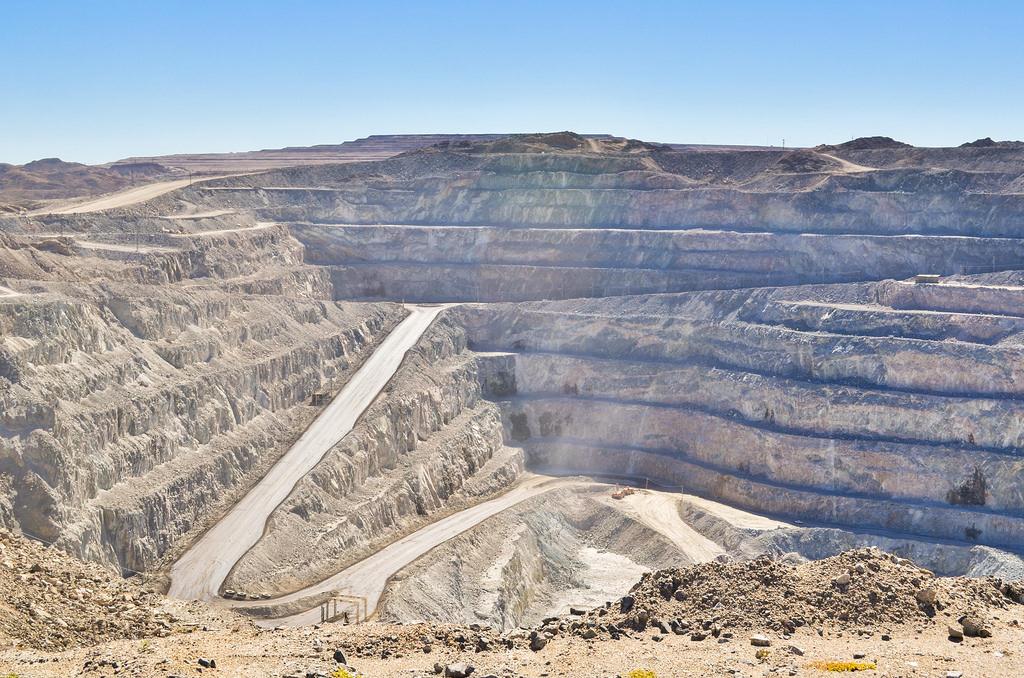Mining industry 'maturing'
While Namibia had been home to some big mining majors such as Rio Tinto and Anglo, many of them have sold their Namibian assets as profit margins have slowly been eroded over the life of the mine.
ELLANIE SMIT
WINDHOEK
Chamber of Mines president Zebra Kasete says the mining sector in Namibia has undergone many changes over the past few years as it has matured, particularly with regard to ownership.
Kasete made these remarks in a review of the industry for 2019 during the chamber's recent AGM.
He said while Namibia had been home to some big mining majors such as Rio Tinto and Anglo, many of them have sold their Namibian assets as profit margins have slowly been eroded over the life of the mine.
“Although many commentators view these developments as negative, the change in ownership has facilitated the continuation of these operators, which would have otherwise likely closed down.”
Rio Tinto last year concluded the sale of its 69% shareholding in the Rössing Uranium Mine to China National Uranium Corporation. Kasete said the sale diverted the loss of some 700 jobs as the prolonged low price of uranium and the increasing cost profile threatened the viability of continuing operations for Rio Tinto.
Diamonds not forever
Another important sale concluded in 2019 was that of Namdeb's Elizabeth Bay mine to Lewcor.
“The ageing profile and diminishing resources of Namdeb's diamond land-based operations have contributed to an unsustainable cost profile of running mines.”
Kasete said the closure of land-based operations is scheduled for 2021, otherwise the life of the mine could be extended by several decades if the government accepts proposals on a revised tax regime for land-based diamond mining operations.
“Lewcor as the new operator of the Elizabeth Bay mine is able to inject new life into this land-based diamond operation that would otherwise have been shut down.”
Gold and salt
As part of its restructuring exercise, OKR's Navachab gold mine offered voluntary separation and early retirement packages to its employees, of whom 29 accepted this offer.
Furthermore, Walvis Bay Salt and Chemicals invested N$100 million in the construction of a new salt processing facility to improve operational efficiency and increase production capacity.
The company also concluded the sale of 15% shareholding to Namibian BEE partners.
AfriTin shipped its first tin concentrate from the rejuvenated Uis Tin mine, marking a milestone in the first phase of redeveloping the mine that had been closed for 30 years. The company progressed with ramping up of operations towards producing 60 tonnes of tin concentrate a month.
WINDHOEK
Chamber of Mines president Zebra Kasete says the mining sector in Namibia has undergone many changes over the past few years as it has matured, particularly with regard to ownership.
Kasete made these remarks in a review of the industry for 2019 during the chamber's recent AGM.
He said while Namibia had been home to some big mining majors such as Rio Tinto and Anglo, many of them have sold their Namibian assets as profit margins have slowly been eroded over the life of the mine.
“Although many commentators view these developments as negative, the change in ownership has facilitated the continuation of these operators, which would have otherwise likely closed down.”
Rio Tinto last year concluded the sale of its 69% shareholding in the Rössing Uranium Mine to China National Uranium Corporation. Kasete said the sale diverted the loss of some 700 jobs as the prolonged low price of uranium and the increasing cost profile threatened the viability of continuing operations for Rio Tinto.
Diamonds not forever
Another important sale concluded in 2019 was that of Namdeb's Elizabeth Bay mine to Lewcor.
“The ageing profile and diminishing resources of Namdeb's diamond land-based operations have contributed to an unsustainable cost profile of running mines.”
Kasete said the closure of land-based operations is scheduled for 2021, otherwise the life of the mine could be extended by several decades if the government accepts proposals on a revised tax regime for land-based diamond mining operations.
“Lewcor as the new operator of the Elizabeth Bay mine is able to inject new life into this land-based diamond operation that would otherwise have been shut down.”
Gold and salt
As part of its restructuring exercise, OKR's Navachab gold mine offered voluntary separation and early retirement packages to its employees, of whom 29 accepted this offer.
Furthermore, Walvis Bay Salt and Chemicals invested N$100 million in the construction of a new salt processing facility to improve operational efficiency and increase production capacity.
The company also concluded the sale of 15% shareholding to Namibian BEE partners.
AfriTin shipped its first tin concentrate from the rejuvenated Uis Tin mine, marking a milestone in the first phase of redeveloping the mine that had been closed for 30 years. The company progressed with ramping up of operations towards producing 60 tonnes of tin concentrate a month.




Comments
Namibian Sun
No comments have been left on this article